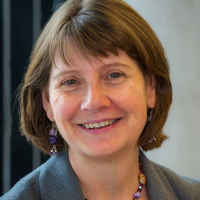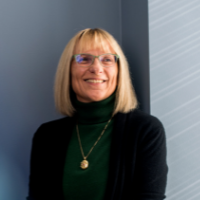This session took place on the Higher Education day at Melbourne EdTech Summit 2021. Speakers included Deanna Raineri, Liz Johnson, and Tim Dodd. They discussed how student expectations for innovation at the tertiary level have enabled new business models.
Education must be responsive to student needs. This simple statement has inspired leaders in education and technology to reimagine models for the delivery of education. This session examined the evolution of education from the degree to the promise of MOOCs — and what comes next.
This in-conversation included Liz Johnson, Deputy Vice-Chancellor (Education) at Deakin University; Deanna Raineri, Senior Advisor to the President, and Vice President and Senior Vice Chancellor for Digital Strategy at Northeastern University; and Tim Dodd, Higher Education Editor at The Australian.
A new era for MooCs
Celebrate the Diversity of Providers in Education
How are we defining students? Recognising the different needs for each student
Supporting academics who are developing new courses and modes of teaching
How to deal with competition in online education? Partnership.
A New Era for MooCs
It’s ten years since the emergence of the MooC, says Tim Dodd, but it’s only now in the pandemic have we seen millions and millions of new students exposed to the online format. How do we make MooCs suit student needs in a new way?
There are more and more lifelong learners, says Deanna Raineri. Really, everyone is a lifelong learner. Jobs are constantly changing with new technologies, and may require people to upskill or reskill. This is where online learning can helpfully come in.
The needs for professional learners are different: they need the flexibility of online. They’re not always looking for traditional tertiary learning, but for job-relevant content in short courses. This can be achieved through co-designing programs with companies.
Celebrate the Diversity of Providers in Education
Online learning changes access and participation, says Liz Johnson. More often, learners in these circumstances come into it knowing exactly what they need to get out of it. Therefore, it’s able to be more personalised.
[Online learning] caters to diversity. If you have people with other commitments, online learning is more accessible for them.
Liz Johnson, Deakin University
These providers are playing a very important role, says Deanna Raineri. They’re providing affordability for education. And most of these degrees are offered in a modular, stackable way. This gives them more options.
Universities can offer these degrees and these certificates at a lower cost.
How are we defining students? Recognising the different needs for each student
You do have to think about student support and help teachers and learners to engage in different environments. Simplicity and using platforms that are already integrated assisted in easier transition for Deakin University students, says Liz Johnson.
It’s about having a more nuanced and sophisticated design that makes the best of both environments [digital and on-campus].
Liz Johnson, Deakin University
Supporting academics who are developing new courses and modes of teaching
Tim Dodd asks, what do academics need to be successful in an online format? With online learning, it’s more about focusing on the method of which we keep students engaged in an online format, says Deanna Raineri. Providing the necessary tools for instructors to facilitate the best way to learn is essential.
Content is a commodity . . . It’s more about: how do you engage the online learner?
Deanna Raineri, Northeastern University
At Northeastern, there’s a team of people that support faculty on how to transition in-class content into an online format.
How to deal with competition in online education? Partnership.
Universities are knowledge generators, have the know-how to teach the subjects, and are good at longer-form learning. That’s not easily replicated.
IT is a good example of how universities have worked well in partnership. It’s a rapidly evolving, so working closely with university and community is essential for students to gain the necessary skills to be equipped for the workplace.
Different providers are not a threat, they’re an opportunity.
Speakers

Liz Johnson
Liz leads Deakin’s ambitious Student Learning and Experience strategy, including the drive to premium digital education and their partnership with FutureLearn. Liz spoke about the need to understand the history of Australian universities to appreciate their current role in society. She discussed mission statements centred around research capability, innovation, teaching and community, and how each pillar plays an important role in guiding our institutions. She gave an overview on funding and revenue sources, decision making and how higher education institutions are in the business of ideas. Providing insight into the tensions at play between trials and experiments (for new technologies) and mass implementation into policy.

Deanna Raineri
Deanna Raineri serves as the Senior Advisor to the President for Learning Partnerships and as the Vice President and Senior Vice Chancellor for Experiential, Digital, and Global Education (EDGE) at Northeastern University. In these roles, Raineri develops and executes strategies to grow the university’s lifelong learning and experiential programs throughout its global university system. Raineri also oversees the New College for the Humanities in London.
Raineri came to Northeastern from Coursera, an online education company, where she served as the Chief Academic Strategist and the interim Chief Content Officer.

Tim Dodd
Tim Dodd is The Australian‘s higher education editor. He has over 25 years experience as a journalist covering a wide variety of areas in public policy, economics, politics and foreign policy, including reporting from the Canberra press gallery and four years based in Jakarta as South East Asia correspondent for The Australian Financial Review.

